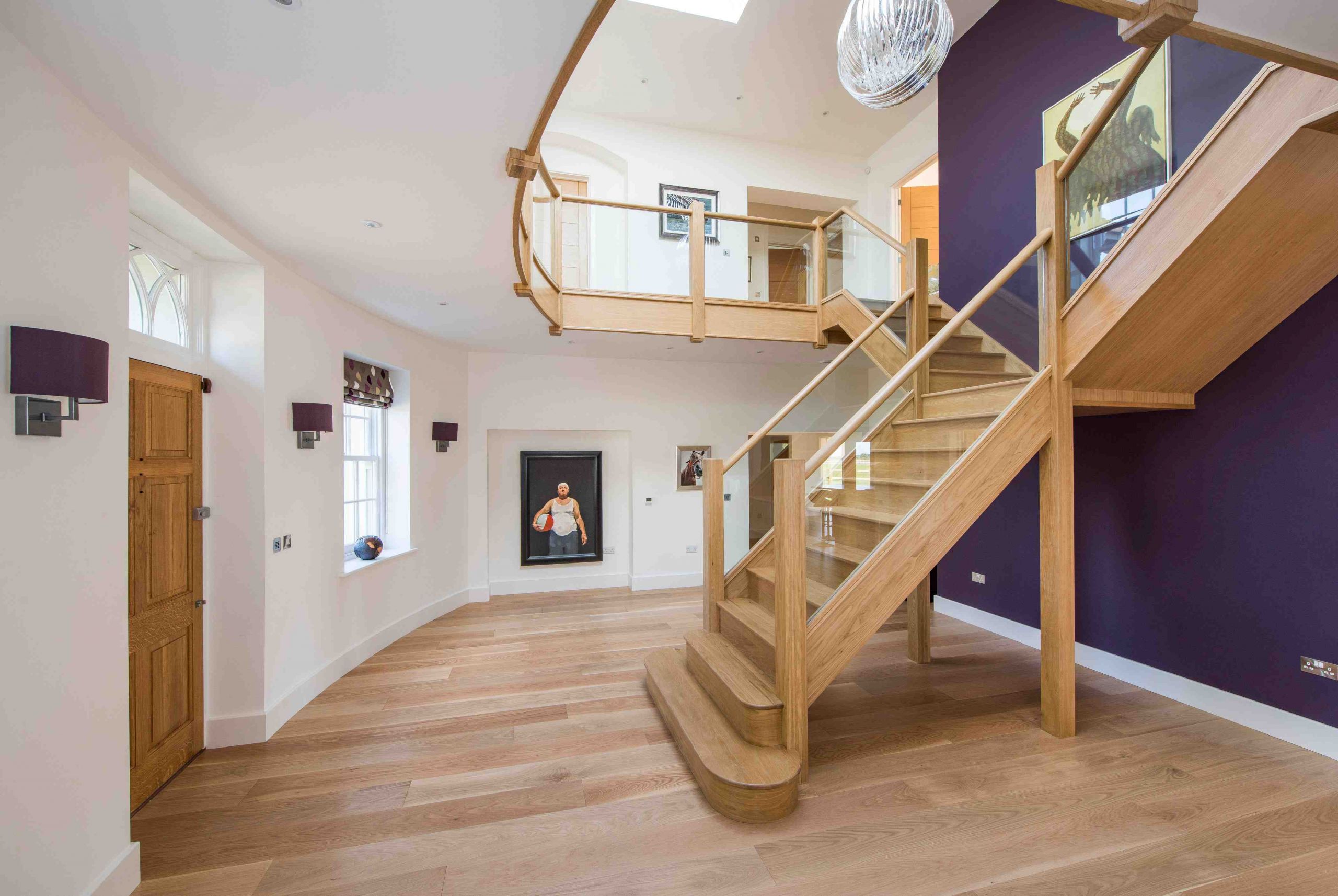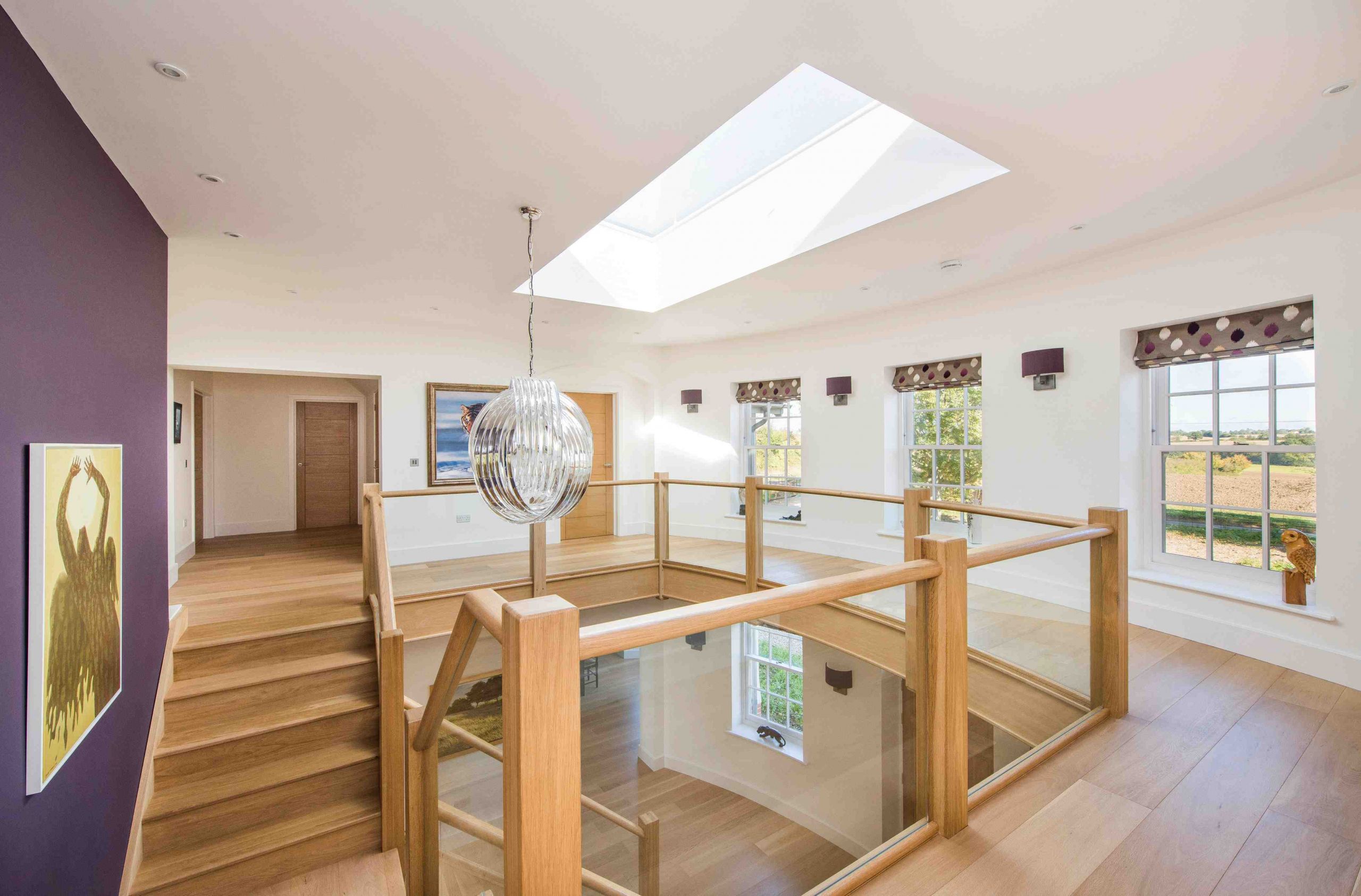Guidance & Manufacturing
Mission Statement
Flightwise Joinery Limited recognises that it has a responsibility to the environment beyond legal and regulatory requirements.
We are committed to reducing our environmental impact and continually improving our environmental performance as an integral part of our business strategy and operating methods, with regular review points. We encourage customers, suppliers and other stakeholders to do the same.


Guidance
Check that all parts of the staircase have been received and report any missing or damaged components within 48 hours of delivery and before you start the installation. Don’t be tempted to take parts from another staircase or make do on site.
Arrange for delivery to coincide with imminent installation to avoid storage problems. Despite our best efforts adverse circumstances sometimes occur we would therefore request that you do not book trades until the staircase is on site as we are unable to compensate in these circumstances.
The immediate application of a sealing coat of your chosen finish should be considered, this is particularly important on hardwood feature stairs.
Staircases should be stored in dry, well ventilated conditions and supported so as not to distort any of the components or pre-assembled flights. A new building is not as a rule a good place to store timber, not even for a few days, the environment will be too damp until the concrete, mortar and plaster have had time to dry thoroughly.
However if the building is of timber frame construction there shouldn’t be a problem as there will be no ’wet trades’ involved in the construction. Never store the stair in contact with or over a wet floor. A shed or garage will often serve for storing timber, but it must be clean, dry and well ventilated, windowless lock-up garages are not ideal.
Avoid placing next to any kind of heat source such as radiators or in direct sunlight, doing so can cause the material to bow, warp, split, crack and even delaminate through drying out, it can also adversely affect the glues used in the manufacture of the stair and can cause the joints to fail, open or squeak.
During construction works protect the staircase from damp muddy boots, knocks and scrapes, and the generally damp conditions associated with the ‘wet trades’. In some cases consider installing later in the build, when the building is dry.
On builds with a longer timescale, consider the use of a temporary sacrificial stair. If fitting a carpet take care when securing the ‘gripper rods’, hammering nails into the riser or tread can cause the joint to become loose, this is a common cause of a squeaking stair.
Manufacturing Schedule
Assembled with treads cut to fit around newels where required. Newels, spindles and handrail will be sent loose. Wall strings sanded on face edge, outside strings sanded on both faces. Tenons will be cut and connected to newels via bore holes.
All treads including straight, winder, bullnose and landing half treads are supplied planed all round with a nosed front edge and overhang of 20mm. Inserts or anti slip treads are not included.
Newels will be mortised to receive both strings and handrails and recessed to accept treads and risers. Sanded on all faces. Moulded tops and drops. Half newels supplied long to be cut at finished floor level.
Raking handrails are supplied with tenons cut at both ends, tenons need to be drilled to correspond with the bore holes located on the newel. Landing handrail will be supplied with a tenon cut on one end only, the other end being left long for trimming on site. Where mitres are required these will be cut, glued and screwed where possible with the shoulder left long for re-cutting on site.
Supplied grooved to suit both the string and the baluster, with infill strip provided to cut between the balusters, infill strip is 3mm thicker than the groove depth so as to make a feature of the joint.
Balusters to be supplied long and will require cutting on site.
Treads will be cut to the required width and cut to fit around newels or strings. The riser will be delivered deeper than required.
Treads will be cut to size and cut to fit around newels. Winders are fitted into the flights where ever possible.
Aprons are supplied deeper than required for site trimming. Nosing to suit 22mm flooring thickness.
Supporting timber and flooring are not included. Only risers and nosings are supplied to quarter space and half space landings. Staircases larger than 1200mm wide will require a carriage piece (Not supplied).



